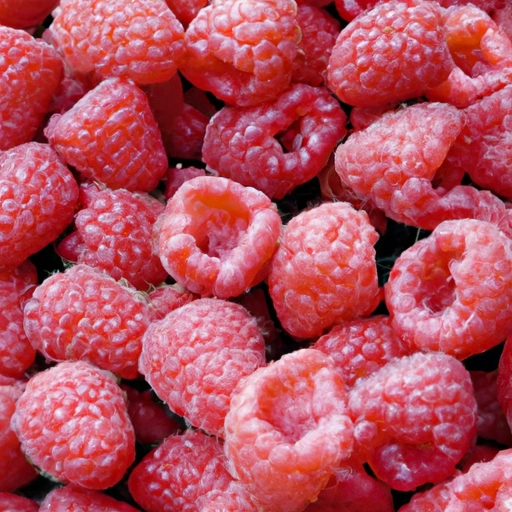Raspberry
Description

Raspberries are a popular soft fruit known for their sweet-tart flavor and vibrant red hue, though they can also be found in black, purple, and golden varieties. These small, delicate berries are a member of the rose family and are technically a cluster of tiny individual fruits called drupelets, each containing its own seed. Raspberries are widely used in culinary applications and are cherished for their unique taste and texture.
Common uses
Raspberries are commonly used fresh, as a garnish, or as a key ingredient in desserts, jams, jellies, syrups, and beverages. They are also used in savory dishes, where their tartness can complement rich and hearty flavors.
Nutritional value
Calories
Approximately 64 calories per cup (123 grams or 4.3 ounces).
Protein
Contains about 1.5 grams of protein per cup (123 grams or 4.3 ounces).
Fat
Raspberries are low in fat, with less than 1 gram per cup (123 grams or 4.3 ounces).
Carbohydrates
Approximately 14.7 grams of carbohydrates per cup (123 grams or 4.3 ounces), of which about 8 grams are dietary fiber.
Vitamins
Rich in Vitamin C, providing 54% of the Recommended Daily Intake (RDI) per cup (123 grams or 4.3 ounces), and also contain Vitamin E, Vitamin K, and B-vitamins.
Minerals
Provide manganese, magnesium, iron, potassium, and copper.
Health benefits
Raspberries offer numerous health benefits. They are high in antioxidants, which can help reduce oxidative stress and inflammation. The dietary fiber in raspberries supports digestive health, while the vitamins and minerals can boost immune function and overall well-being.
Potential risks
While raspberries are generally safe for consumption, they can spoil quickly and should be eaten or preserved soon after purchase. Overconsumption may lead to gastrointestinal discomfort due to their high fiber content.
Common recipes
Raspberries are featured in various recipes such as pies, tarts, cheesecakes, sorbets, smoothies, and salads.
Cooking methods
Raspberries can be eaten raw, cooked down into sauces, baked in pastries, or blended into purees. They are sensitive to heat and should be handled gently.
Pairing with other ingredients
They pair well with chocolate, cream, other berries, citrus fruits, mint, and certain types of cheese like goat cheese and brie.
Summary
Raspberries are a widely cherished fruit that offer versatility in the kitchen. From sweet desserts to savory dishes, they bring a unique flavor profile and a host of nutritional benefits to a variety of recipes. Whether enjoyed fresh, cooked, or as part of a complex dish, raspberries can elevate the eating experience with their delightful taste and texture.